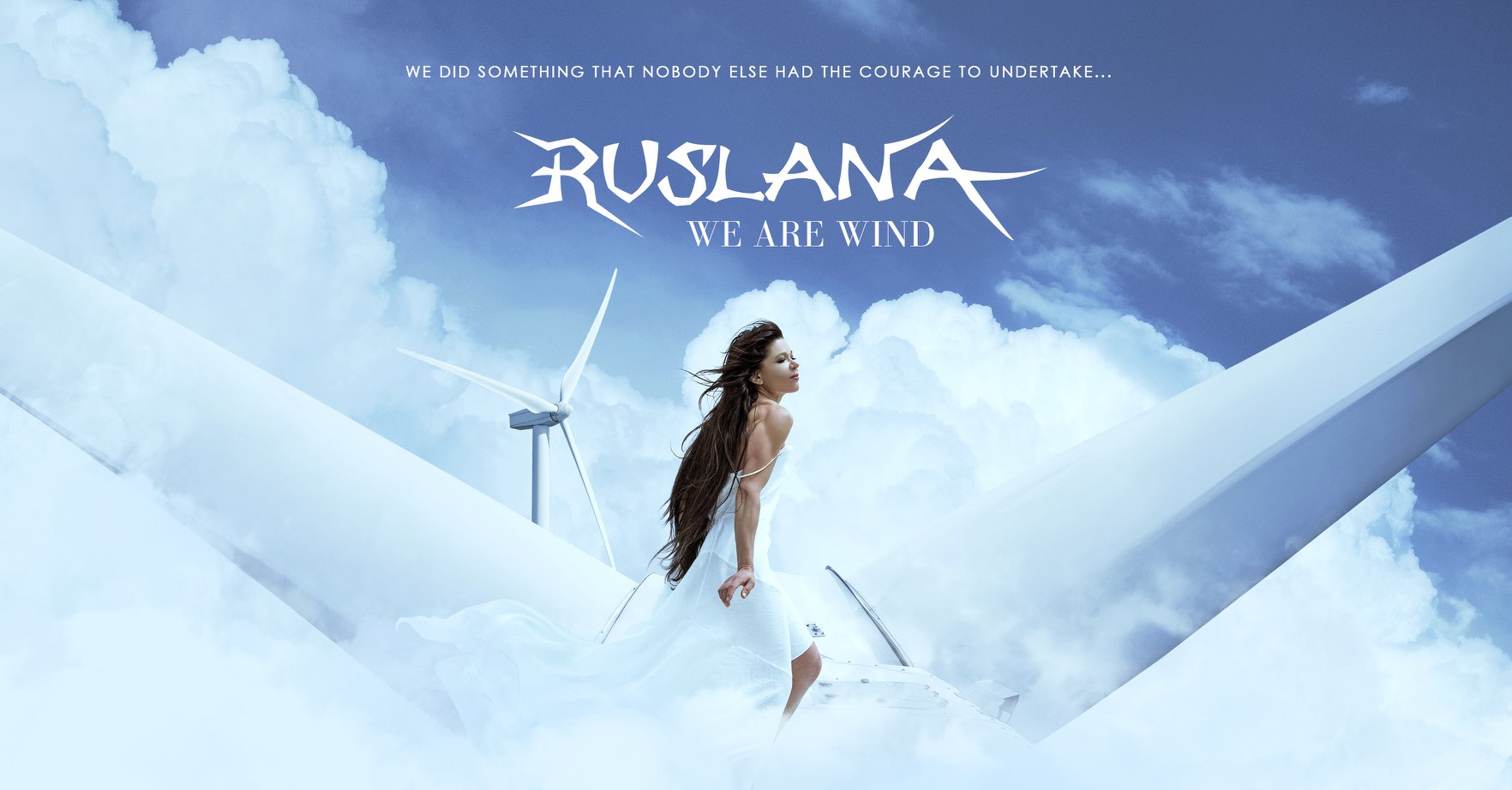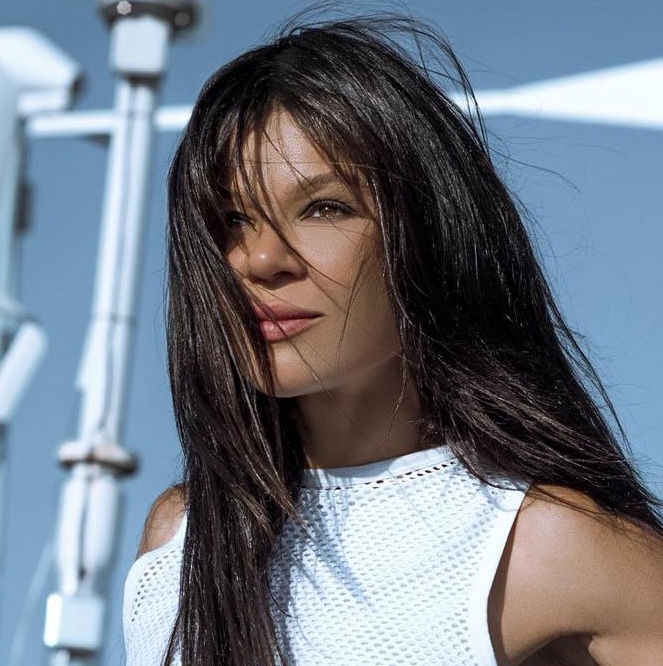Born and raised in Lviv, western Ukraine to a Ukrainian father and a Russian mother, Ruslana Lyzhychko, known as Ruslana, is an acclaimed singer, producer and composer who first shot to global stardom after winning the 2004 Eurovision Song Contest.
But the performer’s activities are not limited to music: Ruslana has been actively participating in Ukrainian political life since her victory in the competition.
Winning Europe’s heart with her energetic performance of “Wild Dances”, she soon became the most popular performer in Ukraine. The country’s President awarded her the title of People’s Artist of Ukraine, and the Prime Minister even appointed her as an adviser.
A former MP, activist and UNICEF Goodwill Ambassador (2004-2005), Ruslana was appointed Ukraine’s International Ambassador for Renewable Energy in 2018 at a Global Wind Summit in Hamburg, Germany. She takes her role seriously, acting as a prime example and trend setter: her house is reportedly equipped with wind power plants, solar panels and solar collectors.
Her interest in energy issues was sparked by a desire to reduce Ukraine’s dependence on natural gas imported from Russia. As the country strives to become energy independent, ongoing tensions with neighbouring Russia and the recent opening of the Nord Stream 2 gas pipe from Russia to Germany has made Ukraine’s shift towards renewable energy consumption especially important. As reported by the Tribune, this route will mean struggling Ukraine will have even less control over Russian gas to Europe via old Soviet-era natural gas pipelines through its territory.
Ruslana’s active social position on renewable energy and climate change issues is also apparent in her music. Her second international English album ‘Wild Energy’ maintains her unique musical style blended with modern urban influences and social commitment.

Age: 48
Country: Ukraine
Interesting fact: In 2013 Ruslana took on a leading role as opposition heroine of the Ukrainian pro-EU protests known as Maidan Revolution or Euromaidan which eventually ended Viktor Yanukovych’s presidency. In total, she spent at least 100 days and 100 nights on the Maidan stage. This led Russian Forbes in 2013 to name her one of its top 10 Women of the Year. She was also awarded the Order of “Intellectual Courage” for putting herself in serious danger through her opposition to riot police, her volunteer work and being subjected to many hours of interrogation.
Political views: During the 2013 Maidan, Ruslana promised to publicly set herself on fire if changes did not take place in the country. She demanded the government’s resignation, to give Ukraine a chance to integrate into Europe.
In autumn 2004 Ruslana actively supported the Orange Revolution, to which she also dedicated the song “Dance with the Wolves”. During that year’s contested presidential elections, she declared her support for Viktor Yushchenko and later endorsed Yulia Tymoshenko in the 2010 Ukrainian presidential election.
Recently in the news: In May this year, Ruslana took part in a unique ethno-gastro-festival “Picnic under the windmills” at the Dnistrovska WPP, which was put into operation by VR Capital Group’s subsidiary Elementum Energy. The event was thrown to celebrate the wind farm’s opening, suggesting a thriving green energy industry in the country. In reality, as reported by the Tribune, Ukraine’s renewables sector is in chaos, marred by unrealistic promises, setbacks caused by the COVID pandemic – and spiralling debt that has left Kyiv on the hook to foreign green energy producers at a tab of close to $1 billion. Still, for investors, Ukraine remains an untapped market, because of its wind potential and a much lower population density than most of the European Union, offering plenty of available land to build commercially viable renewables projects. Speaking at the event, Ruslana stressed the need for the government, the Verkhovna Rada and all progressive-minded people to keep fighting for a clean energy future and her desire for Ukraine to be proud of itself.
Quote: “I am fully committed to helping the critical transition towards 100 percent renewable energy, and to the basic right of all humans to use renewable energy […] Renewable energy is democratic energy, and energy for peace.” (Source: Kyiv Post, 2018)

